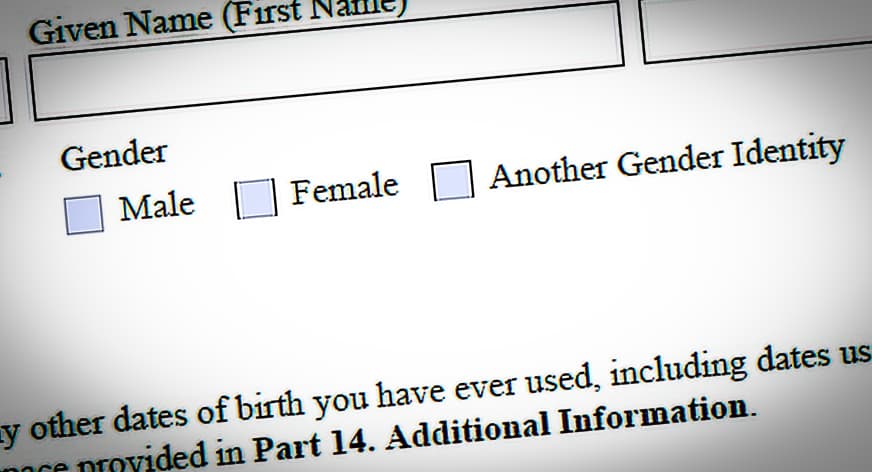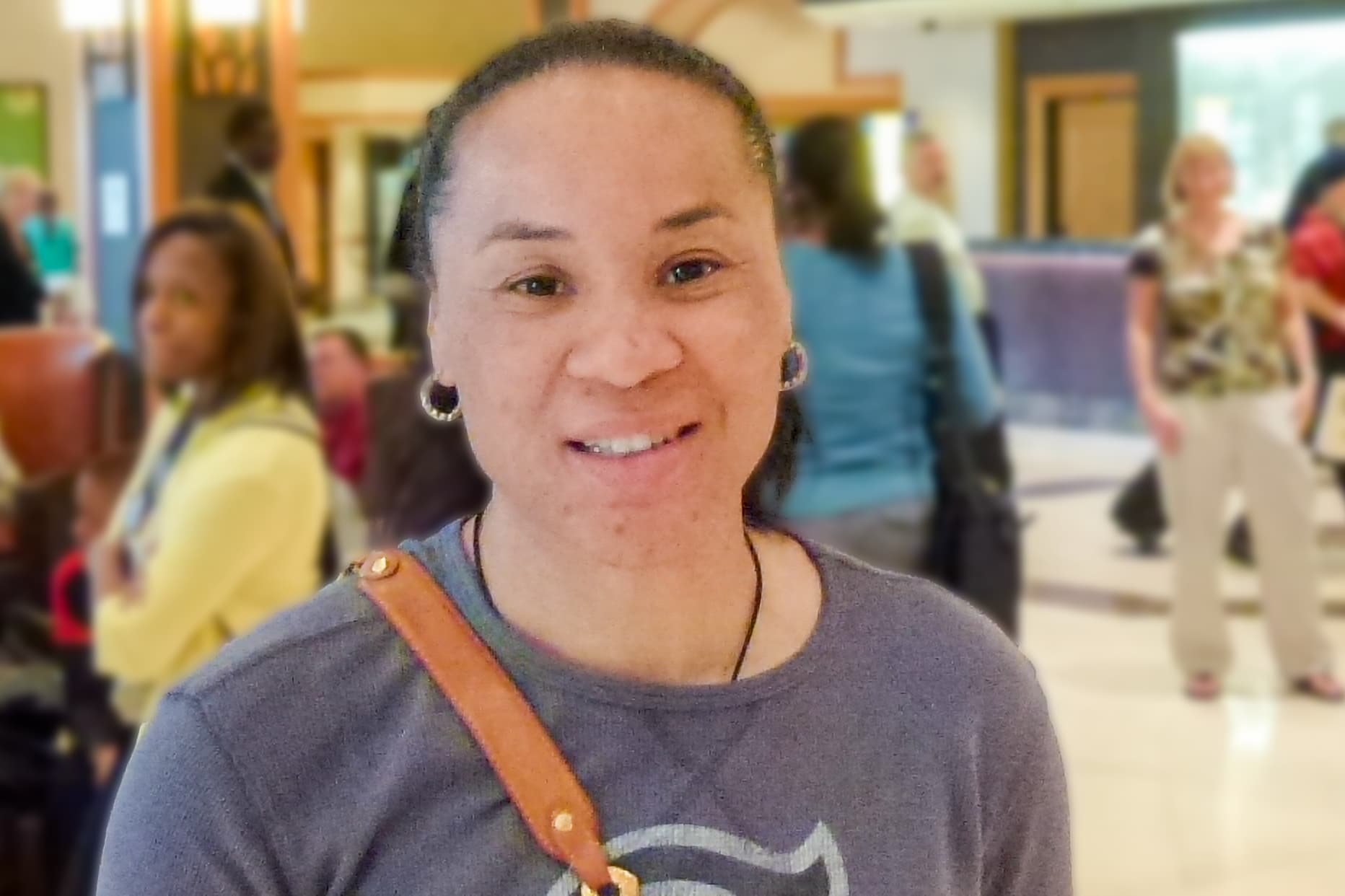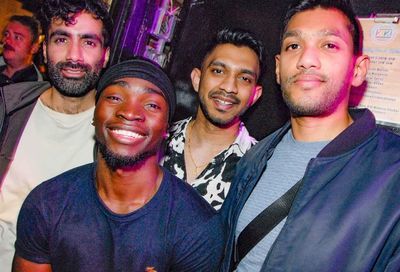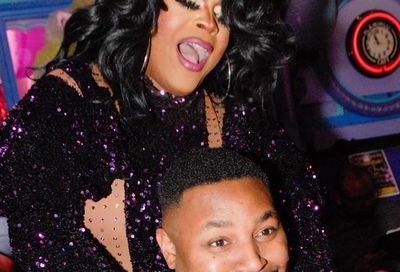Hundreds of thousands of trans and nonbinary people could face obstacles in voting
Trans people may lack accurate identity documents, encounter hostile poll workers, and even be threatened with violence

With just one week less to election, and the Supreme Court ruling in a way that calls into question the validity of votes being mailed in if they don’t arrive at local county clerk’s offices by Election Day (even if postmarked prior to Nov. 3), many Americans who want their votes to count are going to be forced to vote in person.
But voting in person can be particularly problematic for transgender people, particularly those whose official government IDs do not match their gender identity or gender presentation or where people are prohibited from changing their birth certificates or other vital documents.
Approximately 965,350 transgender people are eligible to vote in this year’s election, according to a report published earlier this year by the Williams Institute, an LGBTQ policy think tank at the University of California-Los Angeles School of Law. But approximately 260,000 transgender, gender-nonconforming, or nonbinary individuals living in states requiring photo identification to cast an in-person ballot reported not having a photo ID with their correct name and gender.
For those people voting can be a difficult, or even traumatic, experience, forcing them to be referred to by their assigned name and gender at birth, which can increase their feelings of gender dysphoria. In other cases, trans people may be outright blocked from voting or forced to cast a provisional ballot until they can “prove” their identity.
Not only transgender people with incongruent IDs, but even those that have gone through the proper channels and obtained licenses or voting IDs with their correct information, may experience discrimination when they arrive at the polls. This is particularly true for Black and brown LGBTQ+ voters, who may face intersectional challenges due to their race or class, in addition to their gender identity.
“There were several hundred-thousand trans folks who were denied the ability to vote four years ago,” says David Johns, the executive director of the National Black Justice Coalition. “Since then, there have been state-led efforts to increase that number, to deny not only trans folks, but nonbinary, gender-nonconforming folks the ability to obtain the kinds of identifications that are now required in order for folks to vote. It’s been a concern for four years, and it’s been exacerbated by this current administration’s attacks on trans folks, and by state legislatures that have taken aggressive measures to try and prevent people from being able to acquire identification to be able to vote.”
Another factor blocking trans people from voting can be housing insecurity. According to the National Alliance to End Homelessness, 56% of transgender adults are unsheltered, meaning the lack of a permanent address can serve as an insurmountable hurdle when it comes to voting.
Johns says trans and nonbinary individuals may face voter intimidation from poll workers who lack culturally competent training to know how to deal with transgender or gender-nonconforming individuals.
“We’ve seen people who have made offensive comments, triggering comments, about people looking very different than the picture on their identification in states where nonbinary or nonconforming is not an option, and where there is a discrepancy between the gender that would’ve been assigned by a doctor and the gender that is consistent with one’s lived experience,” he notes. “These types of micro-aggressions have resulted in people leaving the polling sites and otherwise not casting their ballot.”
NBJC is also concerned about a second type of intimidation tactic, one that can be utilized against trans people, especially those who are people of color.
According to the U.S. Trans Survey, approximately 1 in 3 trans people who presented an ID that did not match their gender presentation faced harassment, were denied services or were attacked.
“There have been reports of white supremacists or right-wing organizations intimidating folks by running them off of the road or pushing them out of lines,” Johns says. “So we are hyper-concerned about those examples of intimidation, especially in states where there are open-carry permits and where militias have already signaled that they’re going to be active and attempting to try and discourage voting.”
NBJC will continue to closely monitor such intimidation tactics, which could continue even after Election Day is long past.
“The thing we’re most concerned about, both leading up to where we are now in the election and after, is violence,” Johns says. “Harassment, bullying, physical violence, threats and real violence against trans folks, nonconforming folks, queer folks, folks who are attempting to vote. We’ve seen that happen in the past. And given this administration’s posture and signaling to folks who harbor or hate and ignorance, we remain concerned and will remain concerned for the period of the inauguration.”
Read more:
LGBTQ advocates: Amy Coney Barrett’s Supreme Court confirmation a “sham” and “power grab”
WATCH: Bob the Drag Queen, Eureka O’Hara, and Shangela host “#WeVote” drag roll call
Support Metro Weekly’s Journalism
These are challenging times for news organizations. And yet it’s crucial we stay active and provide vital resources and information to both our local readers and the world. So won’t you please take a moment and consider supporting Metro Weekly with a membership? For as little as $5 a month, you can help ensure Metro Weekly magazine and MetroWeekly.com remain free, viable resources as we provide the best, most diverse, culturally-resonant LGBTQ coverage in both the D.C. region and around the world. Memberships come with exclusive perks and discounts, your own personal digital delivery of each week’s magazine (and an archive), access to our Member's Lounge when it launches this fall, and exclusive members-only items like Metro Weekly Membership Mugs and Tote Bags! Check out all our membership levels here and please join us today!






















